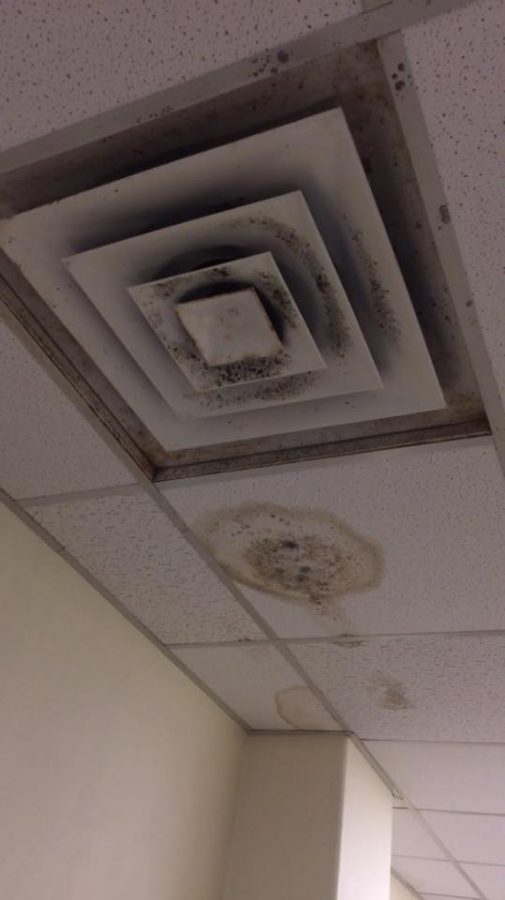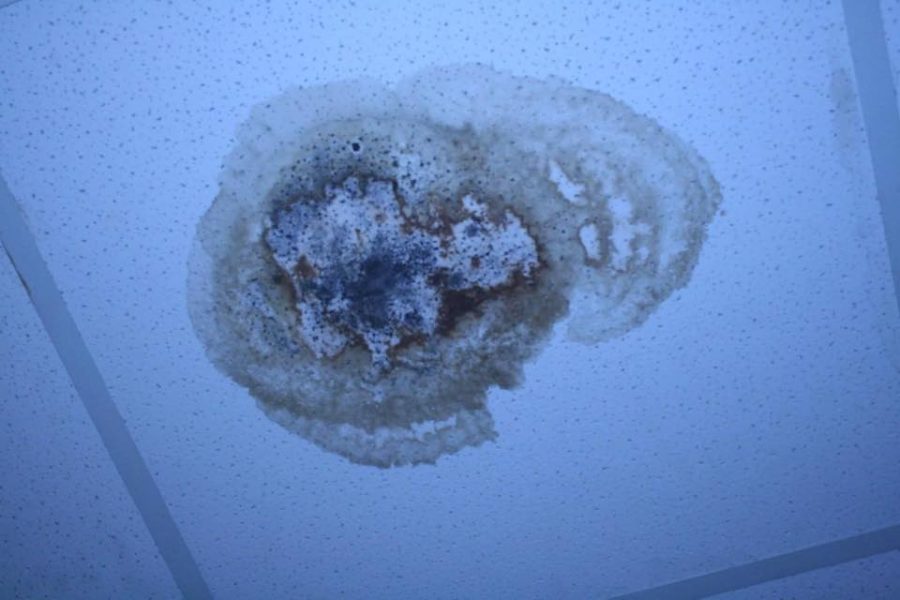Mold in PAC grows to be a problem
Photo credit/ McKensie Curnow
October 4, 2016
The Performing Arts Center (PAC) at Marywood University has a growing problem, literally.
Mold has been growing on ceiling tiles and air vents on the ground floor of the building.
Pat Toomey, technical stage director and stage manager, said that the mold keeps being addressed, but it still continues to be a nuisance.
Toomey said that it’s important to know that whenever a problem is apparent, groundskeepers are quick to address issues such as changing ceiling tiles, re-wrapping pipes and fixing leaks, but there are still some causes for concern.
“The bigger issue is just the air quality in the building,” said Toomey. “It’s a musty building, that’s the thing. Unfortunately, to get ahead of it is a big deal. There’s got to be a big approach to it.”
Toomey said that the building’s conditions are expected because of its old age, as well as humidity.
“We have humidity in the building and you get to a point when once it gets hot out, you can’t open doors and you just start seeing a little bit of mold on the ceiling blocks,” said Toomey.
According to Director of Building and Grounds Wendy Yankelitis, when students see mold they automatically assume it is not safe, which is not the case.
Yankelitis said it is common to see mold on a ceiling tile in some locations because it only takes moisture for mold to grow.
“The way we determine if a place is safe is we compare the mold content from the outside of the building to the inside of the building,” said Yankelitis.
The amount of mold in the PAC has never exceeded the amount of mold in the air outside the building, according to Yankelitis.
She added that if students see a building and grounds problem, it is best if they report it.
The mold has not affected scheduling or classes, and it never caused the building to be shut down, said Toomey.
“We’ve never been at a point where we couldn’t use a room or classroom outside of the flooding incident last year,” said Toomey.
Dr. David Romines, associate professor of music, is not worried about the current mold situation.
“I think it’s something that can potentially be an emerging problem,” said Romines. “I don’t think it’s an acute situation at the moment. I think it could easily be taken care of.”
Romines also said that he thinks last year’s flood in the PAC “exasperated the problem.”
Connor Williams, a senior music therapy major, said the mold has been in the building for much of his time at Marywood.
Williams suggested the panels where the mold is growing should be removed and replaced or the Buildings and Grounds Department should “get at the root cause of the mold” to completely prevent the mold from growing.
“It’s always been a concern for a lot of our students,” said Williams.
Rachel Looker contributed to this article.
Contact the writers: [email protected] [email protected] [email protected]
















